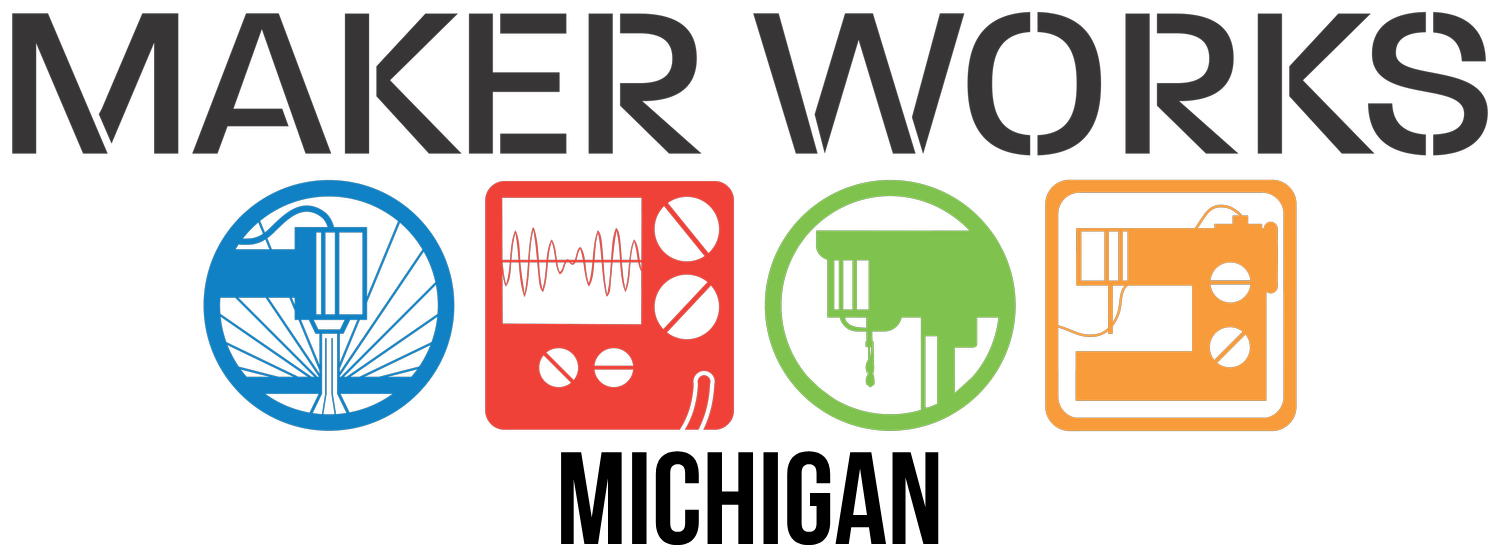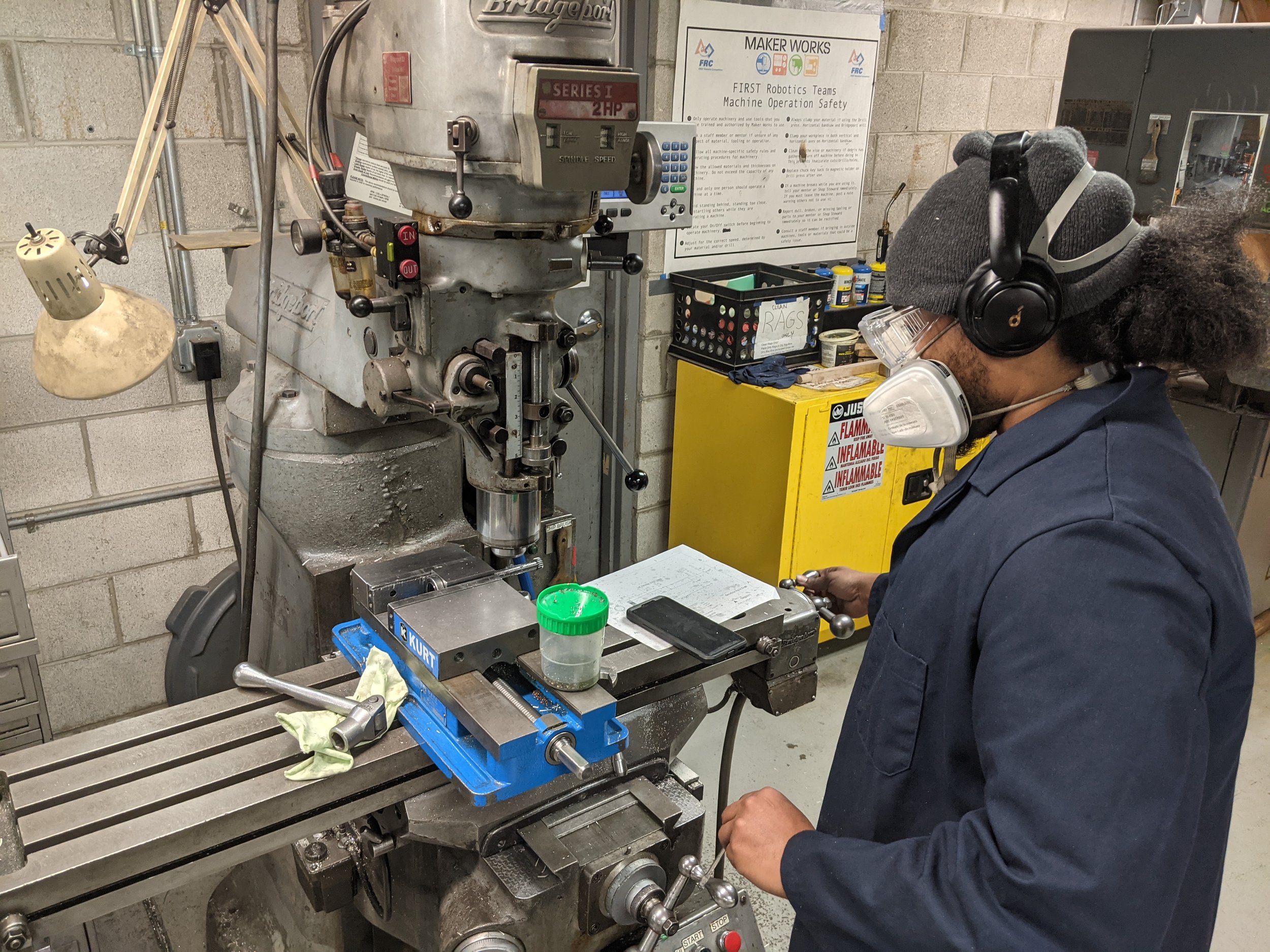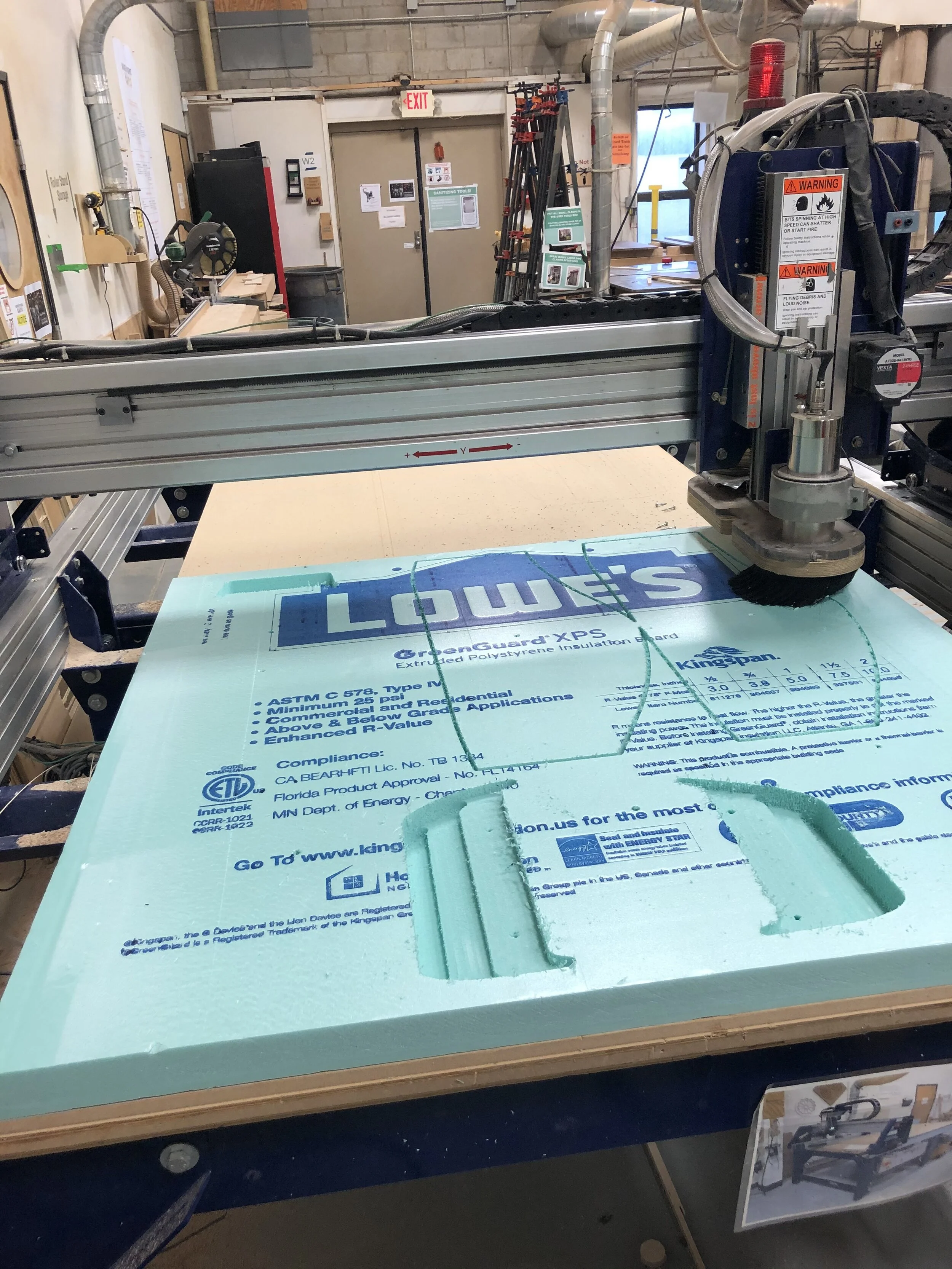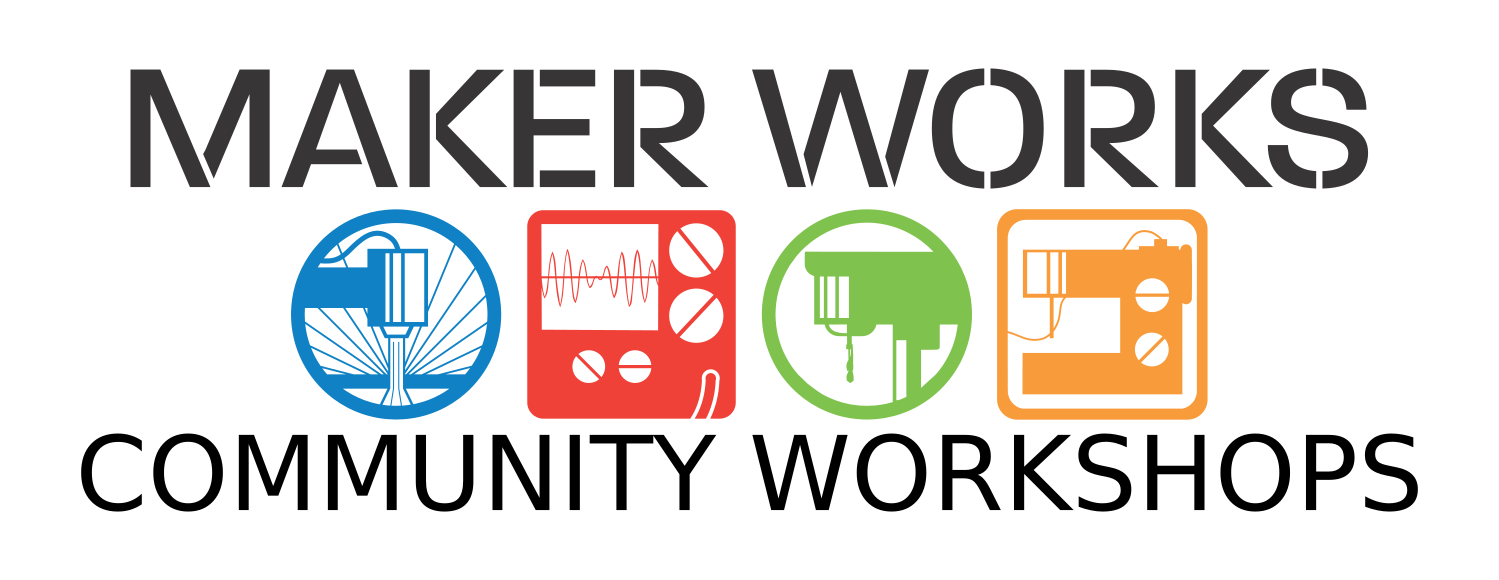Maker Works is pleased to announce the next phase of our makerspace—a transition to a nonprofit!
You may or may not know that Maker Works has until now been a for-profit with three bottom lines: people, planet, and profit. We have done great work on the people and planet bottom lines, and firmly believe the Ann Arbor area is better for having this makerspace. But we have not had great success with the profit bottom line, and that's pretty important for sustainability.
As a nonprofit, however, there may be additional opportunities for relationships with schools and state and local agencies that have not been available as a for-profit. Also, nonprofits are eligible to receive grants and donations.
Over the past many months, we've been working with a local foundation that is interested in funding the formation of a new nonprofit to acquire and operate Maker Works. We're happy that the agreement is now in place, and a new nonprofit, Maker Works Community Workshops, will be completely taking over all Maker Works operations as of January 1, 2021.
What does this mean for our members? The space will operate just the same as always. Same staff, same vision, same basic mission—which is:
The mission of Maker Works is, through its educational programs, to expand the knowledge and develop skills of adults and students in our community in a variety of fabrication technologies outside of, but sometimes augmenting, the formal educational system; to encourage the establishment and growth of small businesses in our community, especially small businesses led by minorities or people with low income, through access to high capital equipment and technical instruction; and to promote the creation and sustainability of makerspaces in other communities through the sharing of best practices.
Day to day, January 1, 2021 is going to look very much the same as December 31, 2020 (except for the whole being closed on New Year's Day thing). Memberships will be honored in full and carry over, the same carefully-curated selections of pop will be in the fridge, Daisy Jane will continue to oversee the common room, and at most we're hoping you'll just have to sign a new member agreement. (And we're really sorry about that—we know we just had everyone sign a new one after the pandemic began.)
Just to be clear, while Maker Works Community Workshops is a Michigan nonprofit corporation, it does not yet have its 501(c)(3) exemption, though it's in process. Once the organization receives the exemption, likely at least 3-6 months down the road, it can receive tax-exempt donations. Also note that membership and other charges will not be tax exempt—only contributions in excess of the fair value received in exchange will be deductible.
We are delighted that Josh Williams has agreed to be the new executive director of Maker Works Community Workshops. His expanded duties will include overseeing day to day operations, managing staff, and reporting to the board of directors. Josh has been on staff since June 2014, and is, as you all know, enthusiastic and helpful. His dial goes all the way to 11.
The current, amazing staff will remain: Al McWaters, Dulce Morales, Eric Rudolph, Irene Wei, Je'Tone Alexander, Kirstin Hensley, Pamela Cohen, and Timothy Huang. They make Maker Works work, day in and day out, and are very appreciated.
We'll now have a board of directors to provide long-term strategy and to support the executive director and staff in meeting our mission. The new volunteer board of directors includes:
































